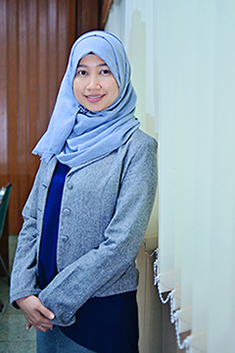Linguistic Validation of Indonesian Version of the Audit of Diabetes-Dependent Quality of Life Questionnaire
Downloads
Acquadro, C., Conway, K., Christelle, G. & I, M. (2004). Linguistic Validation Manual for Patient-Reported Outcomes (PRO) Instruments. Lyon: Mapi Research Institute.
Acquadro, C., Conway, K., Hareendran, A. & Aaronson, N. (2008). Literature Review of Methods to Translate Health-Related Quality of Life Questionnaires for Use in Multinational Clinical Trials. Value in Health; 11; 509-521.
Arifin, B., Perwitasari, D. A., Thobari, J. A., Cao, Q., Krabbe, P. F. & Postma, M. J. (2017). Translation, Revision, and Validation of the Diabetes Distress Scale for Indonesian Type 2 Diabetic Outpatients with Various Types of complications. Value in Health Regional Issues; 12; 63-73.
Bradley, C., Eschwège, E., De Pablos-Velasco, P., Parhofer, K., Simon, D., Vandenberghe, H. & Gonder-Frederick, L. (2018). Predictors of Quality of Life and Other Patient-Reported Outcomes in the PANORAMA Multinational Study of People with Type 2 Diabetes. Diabetes Care; 41; 267-276.
Bradley, C. & Gilbride, C. (2008). Improving Treatment Satisfaction and Other Patient-Reported Outcomes in People with Type 2 Diabetes: the Role of Once-Daily Insulin Glargine. Diabetes, Obesity & Metabolism; 10; 50-65.
Bradley, C., Todd, C., Gorton, T., Symonds, E., Martin, A. & Plowright, R. (1999). The Development of an Individualized Questionnaire Measure of Perceived Impact of Diabetes on Quality of Life: The ADDQoL. Quality of Life Research; 8; 79-91.
Fitri, S. Y. R., Lusmilasari, L. & Juffrie, M. (2019). The Indonesian Version of the Premature Infant Pain Profile–Revised: Translation and Adaptation of a Neonatal Pain Assessment. International Journal of Nursing Sciences; 6; 439-444.
Hirose, A., Fujihara, K., Miyamasu, F., Iwakabe, S., Shimpo, M., Heianza, Y., Horikawa, C., Yachi, Y. & Sone, H. (2016). Development and Evaluation of the Japanese Version of the Audit of Diabetes-Dependent Quality of Life for Patients with Diabetes. Diabetology International; 7; 385-390.
International Diabetes Federation. (2019). IDF Diabetes Atlas, 9th Edition. Brussels: International Diabetes Federation.
Jing, X., Chen, J., Dong, Y., Han, D., Zhao, H., Wang, X., Gao, F., Li, C., Cui, Z., Liu, Y. & Ma, J. (2018). Related Factors of Quality of Life of Type 2 Diabetes Patients: A Systematic Review and Meta-analysis. Health and Quality of Life Outcomes; 16; 1-14.
Kiadaliri, A. A., Najafi, B. & Mirmalek-Sani, M. (2013). Quality of Life in People with Diabetes: a Systematic Review of Studies in Iran. Journal of Diabetes & Metabolic Disorders; 12; 1-10.
Kizilay, F., Gali, H. & Serefoglu, E. (2016). Diabetes and Sexuality. Sexual Medicine Reviews; 5; 1-7.
Kong, D., Ding, Y., Zuo, X., Su, W., Xiu, L., Lin, M., Rao, S. & Yu, S. (2011). Adaptation of the Audit of Diabetes Dependent Quality of Life Questionnaire to People with Diabetes in China. Diabetes Research and Clinical Practice; 94; 45-52.
Levterova, B. A., Levterov, G. E., Dragova, E. A., Grudeva, T. S. & Kostourkov, Y. L. (2017). Bulgarian Version of the Audit of Diabetes-Dependent Quality of Life (ADDQoL-19). Biotechnology & Biotechnological Equipment; 31; 581-587.
Margareta, K., Aninditha, T., Hakim, M. & Kuniawan, M. (2017). Adaptasi Transkultural Kuesioner painDETECT ke dalam Bahasa Indonesia. Neurona (Majalah Kedokteran Neuro Sains Perhimpunan Dokter Spesialis Saraf Indonesia); 34; 151-158.
Musa, K. I., Ismail, A. A., Naing, L. & Mohamad, W. (2007). The Reliability and Validity of the Malay Version of the 18-Item Audit of Diabetes Dependent Quality of Life (the Malay ADDQOL) Questionnaire. The Southeast Asian Journal of Tropical Medicine and Public Health; 38; 398-405.
Ostini, R., Dower, J. & Donald, M. (2011). The Audit of Diabetes-Dependent Quality of Life 19 (ADDQoL): Feasibility, Reliability and Validity in a Population-Based Sample of Australian Adults. Quality of Life Research; 21; 1471-1477.
Riskesdas. (2018). Laporan Nasional Riset Kesehatan Dasar (RISKESDAS) 2018. Jakarta: Badan Penelitian dan Pengembangan Kesehatan.
Rubin, R. R. & Peyrot, M. (1999). Quality of Life and Diabetes. Diabetes/Metabolism Research and Reviews; 15; 205-218.
Singh, H. & Bradley, C. (2006). Quality of Life in Diabetes. International Journal of Diabetes in Developing Countries; 26; 7-10.
Thulin, L. B. B., Iversen, M. & Hanestad, B. R. (2008). Translation and Cultural Adaptation of the Audit of Diabetes-Dependent Quality of Life (ADDQoL) into Norwegian [Oversettelse og Kulturell Tilpasning av Diabetes Spesifikt Livskvalitets Skjema Addqol for Bruk I Norge]. Vård i Norden Nordic Journal of Noursing Research; 28; 53-56.
Turk, E., Rupel, V., Tapajner, A. & Isola, A. (2014). Reliability and Validity of the Audit on Diabetes-Dependent Quality of Life (ADDQoL) and EQ-5D in Elderly Slovenian Diabetes Mellitus Type 2 Patients. Health; 6; 699-711.
Wee, H. -L., Tan, C. -E., Goh, S. -Y. & Li, S. -C. (2006). Usefulness of the Audit of Diabetes-Dependent Quality-of-Life (ADDQoL) Questionnaire in Patients with Diabetes in a Multi-Ethnic Asian Country. PharmacoEconomics; 24; 673-682.
Wild, D., Grove, A., Martin, M., Eremenco, S., Mcelroy, S., Verjee-Lorenz, A. & Erikson, P. (2005). Principles of Good Practice for the Translation and Cultural Adaptation Process for Patient-Reported Outcomes (PRO) Measures: Report of the ISPOR Task Force for Translation and Cultural Adaptation. Value in Health; 8; 94-104.
1. The copyright of this journal belongs to the Editorial Board and Journal Manager with the author's knowledge, while the moral right of the publication belong to the author.
2. The formal legal aspect of journal publication accessibility refers to the Creative Commons Attribution-Non-Commercial-Share Alike (CC BY-NC-SA), which implies that the publication can be used for non-commercial purposes in its original form.
3. Every publication (print/electronic) is open access for educational, research, and library purposes. In addition to the objectives mentioned above, the editorial board is not responsible for copyright infringement


.jpg)















